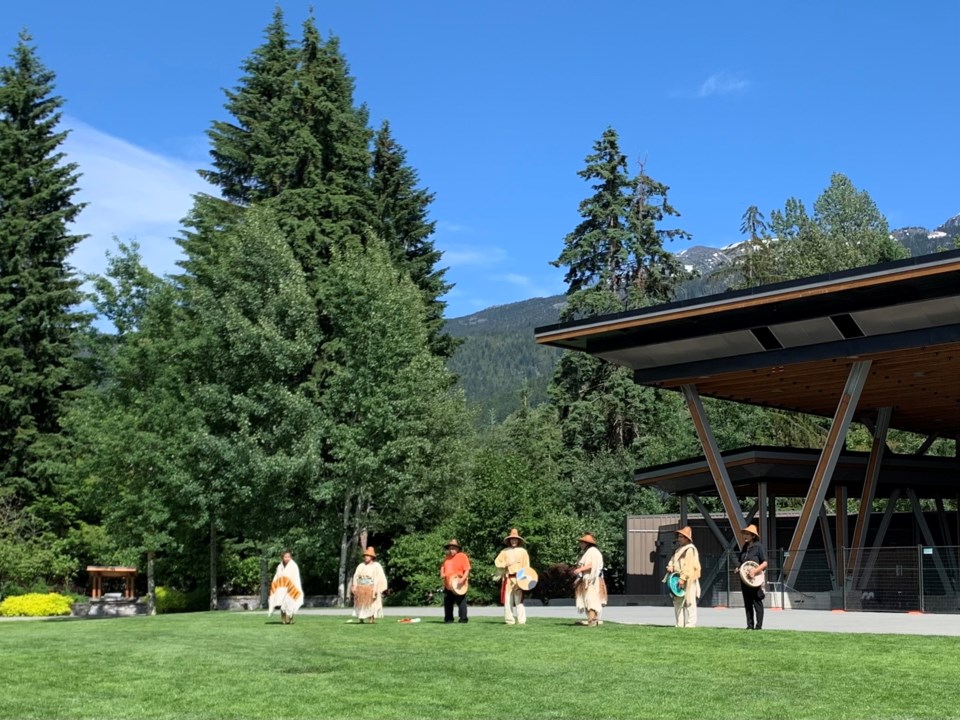It’s clear from media coverage, if nothing else, that this year’s National Indigenous Peoples Day was different than in the past.
Previously, while the day was marked by First Nations, Metis and Inuit across Canada and press releases on the topic flew out of government communications departments at a furious pace, many Canadians paid little attention to it (perhaps already looking forward to a long weekend and celebrating Canada Day).
Not so this year.
It’s our shame that it took the discovery of the remains of 215 children at the former Kamloops Indian Residential School to make most of us sit and listen to what our Lil’wat and Squamish neighbours have always been telling us.
The horror of the unmarked graves cannot be overstated. But perhaps these children, who I hope will be identified, repatriated and honoured, have offered us a chance for meaningful reconciliation at every level of our lives.
This is not going to be easy.
Most of us have absolutely no idea of the level of racism our Indigenous Peoples of Canada face—all the time—in shops, from the police, at school, literally everywhere.
But what we are seeing now is a generation of Indigenous people who are not going to just walk away from this anymore, a generation who are helping to rebuild their Nations and communities after genocide, a generation who feel pride.
And non-Indigenous people are reading and learning and talking about this reality and for many really seeing it for the first time.
We have to listen. We have to have some very uncomfortable conversations.
We have to really talk about systemic racism because it will be impossible as a country to transition to a better society if we don’t—we need to treat people fairly and consistently and get past the colour of someone’s skin.
A place to start right now at the government level is for the court cases fighting residential school survivors and First Nations children at the Human Rights Tribunal to end.
While we can honour our Indigenous people this is no time for celebration. That will come in the years ahead when missing and murdered Indigenous women are recognized and served justice, when First Nations all have clean water, when Nations such as the Five Nuu-chah-nulth First Nations of Ahousaht, Hesquiaht, Ehattesaht/Chinehkint, Mowachaht/Muchalaht, and Tla-o-qui-aht are allowed to fish for their communities, and when Indigenous people are not overrepresented in our jails.
Said Wickaninnish, Cliff Atleo, lead negotiator for the Ahousaht First Nation this week upon learning that the BC Court of Appeal ruled in favour of the Five Nations’ appeal over fishing rights: “I am not happy with the Government of Canada’s interpretation of reconciliation because it falls short of allowing us to re-establish our way of life that supports our families and communities.
“Canada’s current approach is just not going to cut it. They need to pay attention to our perspective of what reconciliation is. It’s still going to require a lot of work and effort on the part of both Canada and our people to secure some certainty in the fishing industry. We want our fishers to be able to make a living, just like the rest of Canada has been able to do using resources in our territories.”
That makes sense to me. No word yet on whether the government will appeal the decision.
I have been asking myself a lot, “What can I do?” I found this comment in an opinion piece in the Montreal Gazette by Brandon Montour, a law student at McGill University. He lives in Kahnawake and is Mohawk.
“If there is one thing you can do, it is to reflect and learn from Indigenous scholars and activists. Understand our grievances and struggles, and why we have them. Amplify the voices of Indigenous people. Most important, however, please check in on your Indigenous friends, colleagues and peers. In light of the recent discoveries in Kamloops, our communities have been dealing with reopened wounds. We are all feeling pain, anger, sadness and despair. We are not living in the past; rather, many of us are trying to escape from it. In the coming weeks, as more and more graves of innocent children are discovered at sites of residential schools across the country, our communities will continue to mourn and find ways to deal with the intergenerational trauma that Canada has brought upon our peoples.”




